'Learning by doing' at Råde Migrant Reception Centre
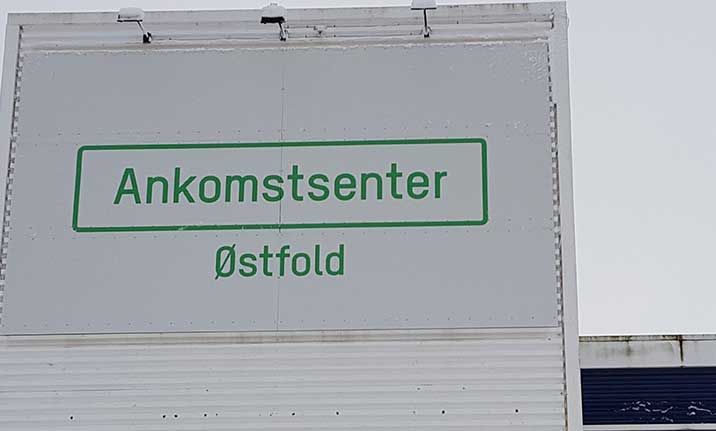
At one time this was a Smartclub retail outlet; now it is a reception centre for migrants. This is where experts from the Norwegian ID Centre are assisting the Norwegian police in training new document inspectors.
Helping others to improve their skills in ID assessment is one of our primary tasks at the Norwegian ID Centre. We do all we can to assist our users, including the Norwegian police, to get the training necessary to ensure that ID inspections are carried out with the highest level of accuracy. One example of our work is the on-the-job training we are providing at the Migrant Reception Centre at Råde, in the county of Østfold. Let’s take a look at the work being carried out.
In a store that was once a part of the Smartclub retail chain, beside the E6 motorway in Råde, we are greeted by a huge sign emblazoned ‘Reception Centre Østfold.’ In an office on the first floor, document investigators from the Norwegian ID Centre have created a mobile lab and training centre for police staff. New ID documents arrive daily to be examined by police staff members, under the watchful eye of our document experts.
Today, document investigator Ida Gladheim is instructing police staff. With her is Sara, a 27 year old police recruit who is being trained in practical document assessment. Sara has been working here for a while and can already be included among the most experienced police staff in the lab. Nonetheless, she still has a fair way to go before being a fully-fledged document investigator.
An eye for detail
In the lab, it is the little things that count – details so small that they are almost invisible to the naked eye. This is where technical equipment comes in handy. Just as important, however, is the ability to examine those small details, and this takes a lot of training. Any deviations from the textbook need to be noted, small or large. It is important to see if theory and reality correspond.
The document investigators begin their work for the day with an air of purpose. Right now it is reasonably quiet at the reception centre, but this could change in the blink of an eye. The investigators make use of the available time to acquire valuable new expertise. One of the tasks for the day is to check a Nigerian passport. Sara demonstrates how she deals with large and small challenges when she examines the document closely. It turns out to be more demanding than it appears at first glance. The checklist is long, making Ida’s extra experience and competence welcome. She answers questions which come up along the way, and makes sure Sara gets the assistance she requires. Every aspect of the passport is closely scrutinized. Sara also has range of technical aids at her disposal, including the reference databases iFADO and DISCS.
Getting results
Sara appreciates the variation that working in the lab entails. No two documents are alike, and the work required to differentiate between genuine and false is demanding, both in terms of time and resources. She finds it motivating to see the results of her work. So far, 14 false documents have been exposed as a result of examinations carried out in the lab. These might otherwise have been accepted as genuine.
In the case of the Nigerian passport, more work remains to be done. This is the way to build practical expertise. Today’s work hasn’t only contributed to increased knowledge and competence however, it also brings new statistics to light, which confirm that the focus on sound checking routines for ID documents is effective.
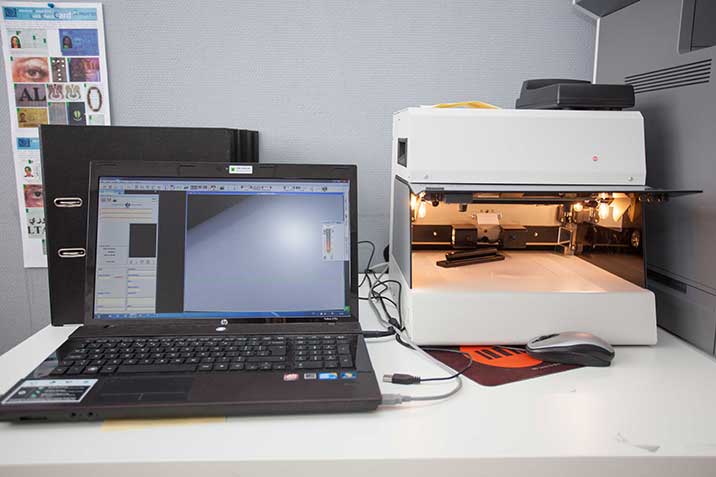
Professional tools make the work easier. In the lab, document investigators have set up the necessary equipment to do a thorough job, such as document scanners.
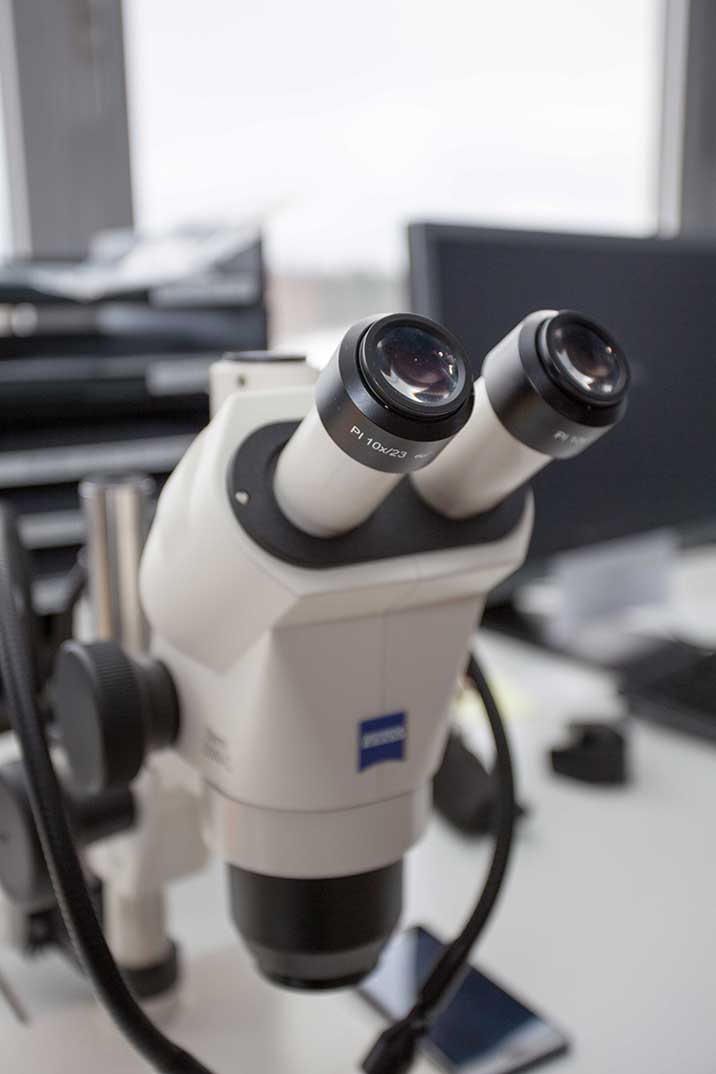
When the naked eye is not enough, stronger remedies are needed.
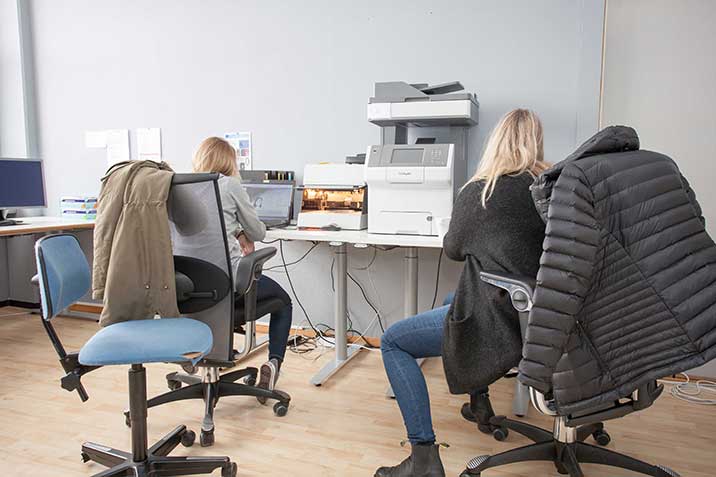
Sara (on the left) throws herself into the task of inspecting a newly arrived Nigerian passport. Ida Gladheim, one of our experienced document investigators at the Norwegian ID Centre, supervises her work.
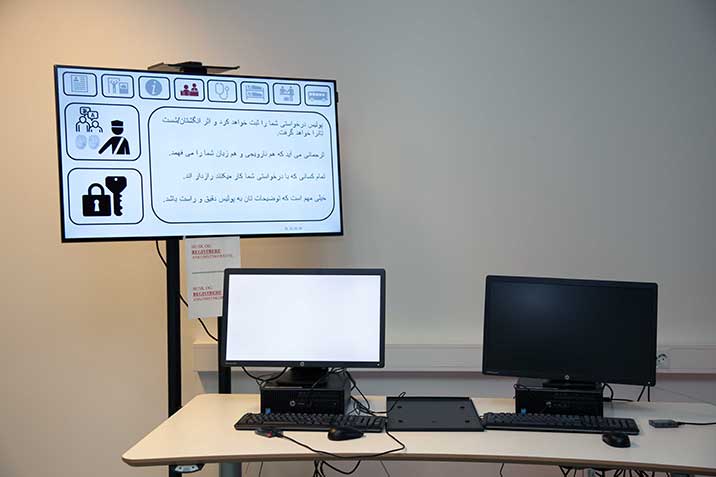
It requires a comprehensive effort at the reception centre to deal effectively with so many refugees, with so many different nationalities. Good communication is essential, requiring the use of various visual aids.
(All photographs: Thomas E. Oksum, Norwegian ID Centre).

